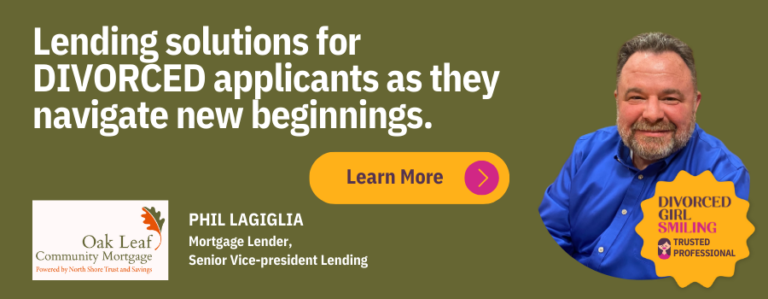We all know that divorce, especially high conflict divorce, can be devastating. Some men and women are so traumatized, that it takes them years to recover from divorce. Really high conflict divorces have even been known to cause post traumatic stress disorder (PTSD).
Yet, while some men and women struggle to survive, others thrive. Instead of experiencing post traumatic stress, some people actually seem to experience post traumatic growth! What allows some people to find a bright side in their suffering, while others become angry and bitter?
What Trauma Does to Us
In order to understand why similar traumatic experiences can cause some people to suffer a lifetime of anxiety, while other change and grow, it’s helpful to understand how trauma affects human beings.
According to the National Institute of Mental Health, nearly everyone will feel fear during and after a traumatic or life-threatening event. For most people, that fear subsides over time. But those who develop post traumatic stress disorder (PTSD), continue to have intense, disturbing thoughts and feelings about their experience long after the danger has passed.
They continue to feel anxiety and re-live the traumatic event for months or years after the event is over.
Post traumatic growth, on the other hand, is the flip-side of post traumatic stress. Post traumatic growth is the positive psychological change that allows people to grow and to have more meaningful lives after trauma than what they had before tragedy struck.
Instead of being crushed by tragedy, people who experience post traumatic growth transcend tragedy.
The Five Areas of Post Traumatic Growth
Researchers have studied post traumatic growth in combat veterans, people with life-threatening illnesses, accident survivors and victims of violence and natural disasters. They have identified five areas of post traumatic growth.
1. A greater appreciation of life – After tragedy, even the most mundane details of life can seem extraordinary.
2. Increased personal strength – Once you’ve been to hell and back, you’re not nearly as afraid of facing whatever life throws at you next.
3. Increased intimacy and better relationships – Living through trauma can make you more compassionate and empathetic to others
4. Recognition of new possibilities or paths in life – Suffering changes your priorities. It can also teach you to see opportunities you may have ignored before.
5. Greater spiritual development – Trauma rocks your world view on such a fundamental level that it often causes you to re-think life’s biggest questions.
Post Traumatic Stress, Post Traumatic Growth and Divorce Trauma
While most people think that PTSD can only be caused by war, disaster, or extreme violence, it can also be caused whenever there is an acute or prolonged trauma. PTSD can happen anytime when your mind can not process the trauma you’ve experienced.
Abusive relationships, especially those that end in a highly contested, ugly divorce, can cause PTSD.
But, divorce can cause post-traumatic growth, as well. Some people who have gone through horrific divorces have come out stronger. They have survived their divorce and created new lives with more meaning and new opportunities.
What determines who will thrive after a traumatic divorce, and who will barely survive?
Why Some People Recover From Divorce While Others Stay Stuck
Like all human behavior, people’s reactions to trauma are complex. While some research suggested that optimists might react more positively to trauma than pessimists, not all optimists grow from their experiences and not all pessimists develop PTSD.
One of the factors that seems to affect your ability to deal with trauma the most is mindset. Dr. David Feldman, PhD, coauthor of Supersurvivors: The Surprising Link Between Suffering and Success, describes a growth mindset as one of grounded hope.
Trauma survivors who experience post traumatic growth acknowledge their pain. They are willing to face their own sadness, suffering, anger and grief. They are realistic about what happened to them. But in the midst of their pain, they’re able to ask: “Given where I am in my life, how can I build the best future possible?”
People who are willing to face their trauma and can grieve and gradually accept trauma are more likely to experience post traumatic growth than those who try to deny their feelings or try to just push the experience away. Researchers have also found that the ability to accept situations that cannot be changed is crucial for adapting to traumatic events.
Another key predictor of your reaction to trauma is social support. Being able to talk with others who are supportive can help you process your trauma. It can help you make sense of even the most senseless divorce.
The Hope of Post Traumatic Growth
For centuries, psychologists and researchers have focused on what’s wrong with the human psyche. But post traumatic growth showcases what’s right with it.
The idea that you can use the pain of an ugly divorce to build a better life afterwards is tremendously encouraging. Knowing that the latest scientific research supports your ability to do that is even better.
Of course, not everyone will experience post traumatic growth. Luckily, research shows that more people are likely to experience post traumatic growth than post traumatic stress disorder. At the same time, growth comes at a cost.
Just because your divorce may make you stronger, doesn’t mean that going through your divorce will be easy or fun. Divorce is painful no matter how many lessons you may learn from it.
Yet, once you know that the way you deal with your divorce, and the mindset you adopt while you’re going through it, can positively change your life afterwards, you start looking at divorce a little bit differently. You start acting and reacting differently.
Most of all, you realize that, no matter how horrible or life-changing your divorce may be, you can grow and rebuild your life afterwards. You start seeing your divorce, not just as the end of your marriage, but as the beginning of your new life.
Like this article? Check out, “When Your Spouse Doesn’t Want a Divorce“

Karen Covy is a Divorce Coach, Lawyer, Speaker and Author. She provides divorce and decision coaching to busy professionals and business owners who want to make clear, confident decisions during one of the toughest yet most sensitive times in their life. Karen also helps them navigate through the divorce process with less conflict, expense, and damage to themselves and their children.
Karen is the author of When Happily Ever After Ends: How to Survive Your Divorce Emotionally, Financially, and Legally. She is also the creator of the online divorce program, The Divorce Road Map 2.0. You can connect with Karen on Facebook, Twitter, LinkedIn and YouTube, as well as on her website at karencovy.com

























what about the relationship, the first one, after the divorce? I’m devestated and can’t find my way forward. I trusted them and it was destroyed. I’m getting to old for crap like this. I have absolutely nothing to live for now.
no I’m not suicidal but if I died I wouldn’t care.